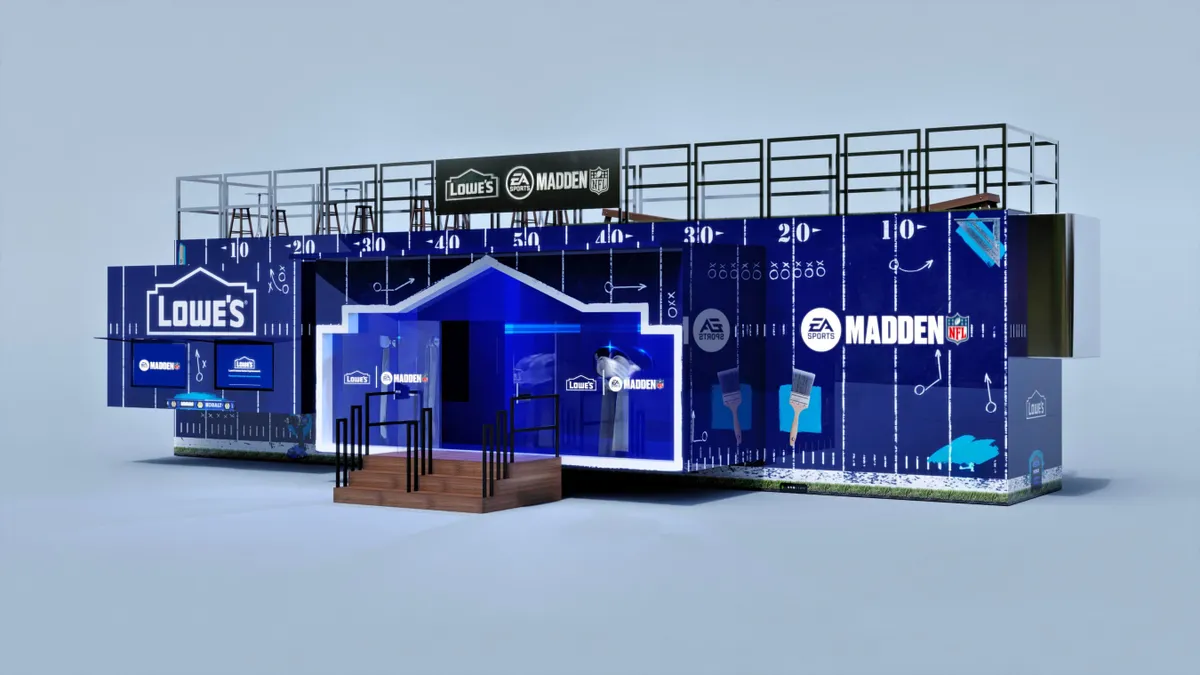Michael Farmer has developed a reputation for taking agencies to task. In his widely read “Madison Avenue Manslaughter,” from 2015, the seasoned consultant dissects how modern business realities and scandals have clashed with an industry still clinging to a faded “Mad Men” mythos. More recently, Farmer has turned his critic’s gaze in a different direction: toward an agency overhaul he admires for its unconventional approach to productization, pricing and scopes of work, even as the bottom-line impact of the strategy has yet to be proven.
“Madison Avenue Makeover: The Transformation of Huge and Redefinition of the Ad Agency Business,” released by LID publishing in July, tracks the turnaround plans of Interpublic Group’s Huge, a digital specialist shop that made its mark during the dot-com boom. As Huge expanded, so did its range of services and physical footprint, eventually spanning 12 offices around the globe. IPG acquired the agency in 2008, seeking to shore up its digital know-how. But growth tapered off, Huge’s vision clouded and its edgy appeal and sense of identity diminished — a familiar agency narrative.
Enter Mat Baxter, who was brought on as Huge’s CEO in 2021 to give the brand a jolt of energy after previously helping revitalize IPG’s Initiative media group. Baxter, an Australian whose media background differentiated him from past Huge leadership, was the agency’s fifth CEO in four years and took the reins in the thick of the pandemic.
In “Makeover,” Farmer acts as a fly on the wall as Baxter’s plans come together with aid from London-based consulting firm The Business Model Company (TBMC). Farmer, who halted his work with Huge to don his reporter cap, was invited by Baxter to bear witness to the highs and lows of this journey, including a transition to making offices co-working and experience spaces and taking a productized, fixed-price approach to client services, which Farmer dubbed “radical.”
Huge’s gambles have yet to yield the desired results. The firm this summer went through a round of layoffs and an executive reorganization, Adweek reported, and has been called out by parent IPG as a soft performer amid larger struggles at the ad-holding group, which has lagged competitors.
This interview has been edited for clarity and brevity.
MARKETING DIVE: Your past work with “Manslaughter” was a macro industry view while “Makeover” focuses on the transformation of one agency. Why was that angle appealing?
MICHAEL FARMER: If you think about “Manslaughter,” it was a 250-page consulting report on the industry born out of all my experience. It was my idea, I controlled the content. Baxter is the first CEO I’ve encountered in 30 years who actually understands what is unhealthy about the industry.
I've always felt a little guilty that, over my 30 years of consulting experience, I had not been able to help the CEOs that I'd worked with get to that point. I always would suggest to them that there's only one thing that you have to do in the beginning: You have to establish a policy that, for every client you serve, you document and measure your scopes of work in a uniform agency way.
Baxter was a month into the job and Huge’s fifth CEO in four years. What do you think his psychology was in asking you to do this?
FARMER: I’m paraphrasing, but he said, “I felt that you would be Jiminy Cricket on my shoulder, whispering in my ear when I was going off track. I actually felt like I needed external pressure on me to do the job at the pace at which it probably needed to be done.” He felt, given his relative inexperience with creative agencies and making a massive structural and cultural change, he needed a witness to keep him honest and to keep his mind focused on the job.
It surely didn't simplify his life with IPG, even to this day. He's caught between doing a transformation that he felt they needed to do but he also had the obligation to make his numbers at a time of great uncertainty. In the balance, I think the holding company cared more about the numbers.
Huge, in the time since you made your observations, has gone through more layoffs and another executive restructuring. What do you make of the tension between the transformation and the reality?
FARMER: If Huge were a private company, Baxter would be lauded as a genius. To succeed with this transformation, he has to get his client heads to sit down with CMOs and say, “Let's not talk about what you’re looking for. Let’s talk about what your problems are, and then I can give you a proposal.” But that isn't the way the industry works. There's a big need to retrain all of the client heads and develop enough of a portfolio of business that the new stuff will start to outweigh the old stuff.
It will take a while to do the tweaking and for people to get their rhythm in having those kinds of meetings. If it were a private company, people would say, “It’s going to take a couple of years to sort this out, but you put them on the right course.” Being part of IPG, they're more sensitive to the numbers than they are to the long-term.
In terms of the turnaround plan, what are the insights you would hope other agencies would come away with?
FARMER: I would hope that agency CEOs would take away that Mat wasn’t afraid to assert his leadership over the 12 office heads and all the department heads, unequivocally. What I’ve seen among the big holding company agency CEOs is they are afraid that they don’t really have any power over their organization.
Agency CEOs somehow feel that their office people are really important; the only way they’re important is that they get out there to develop new clients to replace the ones that are leaving. I think agency CEOs are very insecure about their power, they don’t want to push it very far and they don't want to be embarrassed. They do not think about their organization as something that they run. They think it runs itself.
Baxter and TBMC settle on 45 products that Huge will offer. Did the streamlining effort not go far enough? Forty-five products seems like a lot.
FARMER: Actually, it's not. When you go through all the different permutations of the media type, the media detail and whether it's low, average or high creative complexity, that adds up.
I think 45 is more than they're going to end up with. But to say, we've got a suite of 45 products when a current agency might end up with a scope of work that has several hundred if not thousands of different types of deliverables — because clients want everything from TV to Facebook posts — it is a very extraordinary simplification.
When Mat says we've got 45 products that are designed to solve three generic client performance problems, then he’s in control. That is a really different dialog, and it’s hard for the client heads to get their heads wrapped around it. They’re not used to being that proactive. They’re used to saying, “What is it you need? Yeah, we can do that” and then worrying about how big the fee will be and if it will cover enough people.
The book also talks about how each product has a fixed price and it's non-negotiable. How unique is that arrangement for an agency?
FARMER: There's nobody that does that. I have worked with everybody over the last 30 years and I have never known anybody who had anything other than the classic scope of work, which is a list of deliverables in a fuzzy format that changes all the time.
What Mat is doing is absolutely 100% unique. It's what consultants do. You get a sense of the client’s problem and then you offer a work plan. What Mat’s 45 products are are really invisible work plans. Huge gives it a descriptive name and it has a price but it doesn't have a duration. The price is not per week or per day. The client leads have all been used to dragging things out because they’ve been able to sell hours to clients. Mat’s saying, no, when you have a fixed-price product, you want to do it as fast as you can and you want to work with the client to overcome barriers to speed. That’s another cultural shift.
Did any of this receive trepidation from the established Huge people?
FARMER: People might have had their private thoughts but usually, to an outsider like me, they would find a way to express them.
During the third executive retreat Baxter held, some doubts came out. The doubts really centered on how Huge could change the culture if it’s in a remote working situation and has eliminated the office heads, which is a very practical question.
There's also been some pruning. Part of that is numbers-based, part of that is there were some people that probably either didn't want to participate in the future of Huge or maybe were deemed not to have the skill set. Here's another thing: I think Mat is clearing the decks to hire a whole bunch of AI people since he’s not selling hours, he’s selling work.























